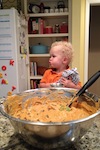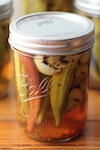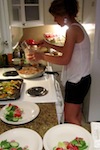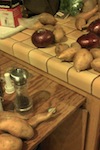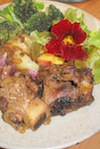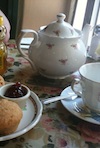Now, after so many years in Nashville, my journals and photograph albums are full of the stories of these gatherings. I’ve come to see them as part of the significant work of my life. I have no guarantee they will ultimately have the effect I want them to. But what I suspect, and what I hope, is that the scents, flavors, often-used recipes, family chitchat, friends catching up, and the familiar stamp of the way things are done will seep in, helping to create a family identity and leave a heritage of belonging.
 For me, my recent visit to Laity Lodge was about opening my eyes to see that we are little children and everything we have is a gift. It was about opening my eyes to see that our heavenly Father is there. To see Him all around us — to see Him in places we may not have seen Him before — to see His love in everything that we have been given, in all the works of His hands.
For me, my recent visit to Laity Lodge was about opening my eyes to see that we are little children and everything we have is a gift. It was about opening my eyes to see that our heavenly Father is there. To see Him all around us — to see Him in places we may not have seen Him before — to see His love in everything that we have been given, in all the works of His hands. For me, my recent visit to Laity Lodge was about opening my eyes to see that we are little children and everything we have is a gift. It was about opening my eyes to see that our heavenly Father is there. To see Him all around us — to see Him in places we may not have seen Him before — to see His love in everything that we have been given, in all the works of His hands.
For me, my recent visit to Laity Lodge was about opening my eyes to see that we are little children and everything we have is a gift. It was about opening my eyes to see that our heavenly Father is there. To see Him all around us — to see Him in places we may not have seen Him before — to see His love in everything that we have been given, in all the works of His hands.














